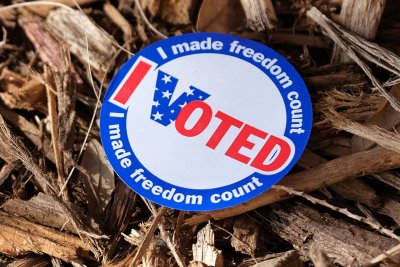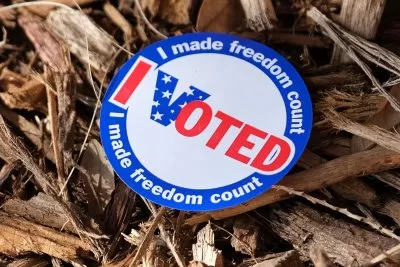
Oct. 22 (UPI) — Judges in Michigan and North Carolina have rejected a Republican attempt to have certain overseas and military absentee ballots thrown out.
The Republican National Convention filed the challenges in separate lawsuits earlier this month, accusing the states of permitting people who have never lived in either jurisdiction to vote.
Each lawsuit states that the Overseas Citizens Absentee Voting Act was passed to ensure members of the U.S. Armed Forces and other American citizens living outside of the United States may vote in federal elections.
But the RNC is challenging the battleground states’ extension of the right to vote to those born overseas but who have a parent, guardian or spouse who last lived in those states.
In Michigan, Judge Sima Patel ruled Monday that the RNC waited too long to file its complaint, citing the Laches doctrine, which can be applied to a civil action related to an election filed less than 28 days before the election is to be held.
Patel said that Michigan electors have already begun to cast their absentee ballots, with 31% — or more than 670,000 ballots — returned to the state by Oct. 15.
She said absentee ballots cast by those who have never resided in Michigan are among those hundreds of thousands, raising the question of how would the state be expected to cull those ballots from the rest.
“It would be extremely difficult or impossible for defendants to design and carry out a program to reject potentially thousands of AVBs at this time,” Patel wrote.
“The Secretary of State has no process in place to distinguish the AVBs cast by absent uniformed and overseas voters whose last residence was in Michigan from AVbs cast by spouses and dependents who gained residence statues.”
Michigan Secretary of State Jocelyn Benson celebrated the ruling in a statement as “a win for voters and democracy.”
In North Carolina, Superior Court Judge John Smith ruled the RNC failed to present any evidence that the rule allowing overseas dependents and spouses of residents to vote in the state has been used for fraud.
Smith said the court does infer that there may be people who fall within the very narrow exemption who may have registered and may have voted, but that not only is there no evidence of someone fraudulently using that exemption to vote, the RNC did not present “any evidence of even a single specific instance of any registrant unlawfully availing themselves of the statutory provision.”
“This court has weighed the hypothetical possibility of harm to plaintiffs against the rights of the defendants and finds that on balance the equitable discretion of this court should not be invoked to treat an entire group of citizens differently based upon unsupported and speculative allegations for which there is not even a scintilla of substantive evidence,” he said.
A third, similar RNC lawsuit attacking absentee ballots remains pending in Pennsylvania, another battleground state.
The lawsuits come amid a tight presidential race between former President Donald Trump and Vice President Kamala Harris.
With the margin of victory expected to be slim, Republicans have been attacking voting in battleground states ahead of November’s general election, specifically absentee ballots.







